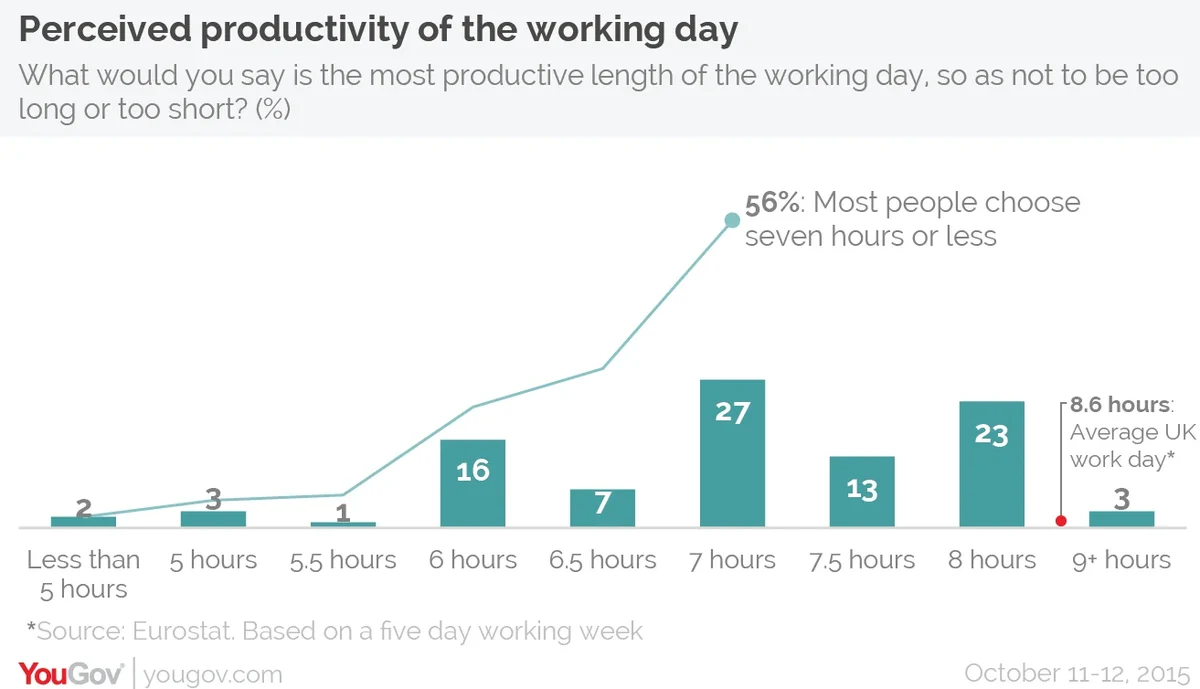People say a working day of seven hours or less would be most productive – and 44% say the work week should be less than five days
According to the OECD the UK has the 25th hardest workers in the world out of 38 countries, significantly below average. This is based on the average hours worked per worker over the course of a whole year, which comes out at 1,677 – 112 fewer than in the US. The figures make us sound lazy, but in the European context that isn’t the case. According to Eurostat, the UK has the fifth longest working week (42.9 hours), ahead of Germany (13th place) and France (25th place).
France and Germany are significantly ahead of the UK in terms of output per hour worked, however, and economists are coming round to the idea that shorter hours could increase productivity. So should we be proud of working long hours?
New YouGov research reveals that British people feel they would in fact be more productive with a shorter working day, which currently averages 8.6 hours based on a five day week. Asked how many hours at work would be most productive, most people (56%) choose a length of up to 7 hours.

Counting up to 7.5 hours (still an hour less than the actual average working day), fully 69% of British people choose a working day up to this length as most productive.
In the US, where YouGov asked the same questions, the majority also say a shorter working day is most productive, however fewer people than in Britain choose up to 7 hours (52%) or up to 7.5 hours (58%).
British people are also more receptive to the idea of a shorter working week. 44% say the ideal length of a work week is 4 days (34%) or 3 days or less (10%), compared to 37% of Americans.
When we asked specifically if British people would support the introduction of a four day working week in April 2014, most people (57%) were in support. 71% said we would be happier as a nation if we did introduce a four day week, and most people (56%) said we would be more productive economically (37%) or no less productive than now (19%).
PA image








